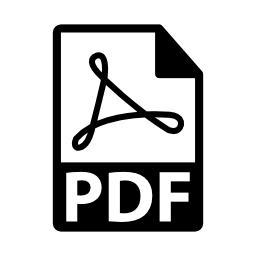June/July 2024 (vol. 21/1)
ContentsFeaturesNewsLegal
NewsResearch DigestResearch PlusCPD
 PERSONAL LEARNING ZONE
PERSONAL LEARNING ZONE
Summary:
FEATURED ARTICLE
This issue of Occupational Health [at Work] features a Personal Learning Zone (PLZ) article recommended for continuing professional development (CPD). The assignment questions, ‘Personal learning statement’ and ‘Certificate of engagement’ are available to subscribers at ohaw.co/AWPcpd. These will also be stored in your password-protected PLZ. The PLZ will help you document your own CPD. Occupational health physicians and nurses, occupational hygienists and other professionals can use the resource in support of their specialism’s revalidation or CPD requirements.
Pages 32–34. Discrimination arising from disability. The Equality Act 2010 defines various forms of discrimination against people because of their race, gender, disability or other ‘protected characteristic’. However, one provision (s.15) applies only to disabled people – ‘discrimination arising from disability’. The role of OH professionals can be crucial, for example in advising if an employee’s poor performance, conduct or behaviour might be related to their disability.
ADDITIONAL CPD
The following articles, news and research items are suggested reading for CPD and professional revalidation. Subscribers can complete their online Personal Learning Zone CPD record at ohaw.co/AWPcpd
Pages 08-10. In Rentokil Initial UK v Miller, the EAT held that, depending on the circumstances, offering a trial period in a new role may be a reasonable adjustment for someone unable to continue in their job due to disability.
Pages 15-18. Migraine is a fluctuating condition, with attacks often difficult to predict; however, some simple adjustments can help reduce the impact of migraine at work.
Pages 19-25. The vast majority of OH professionals will have experienced workers raising suicidal thoughts at their OH consultation. Although this is not a common occurrence, practitioners need to know how to respond and where individuals should be referred to for further help.
Pages 26-31. Since the COVID-19 pandemic, methods of delivering OH services remotely have become increasingly common. Undertaken properly, remote health surveillance, such as for noise, skin and respiratory exposures, can be effective if used alongside face-to-face assessment where clinically indicated.
Pages 35-36. People who work with vulnerable individuals with a history of trauma can sometimes themselves develop secondary traumatic stress from hearing and retelling the traumatic experiences.
Pages 40-42. Our compendium of recent research includes a study looking at the barriers and facilitators to people choosing careers in OH, and another on occupational physicians’ retirement plans.
Author: The At Work Partnership Ltd
Occupational Health at Work June/July 2024 (vol. 21/1) pp43



